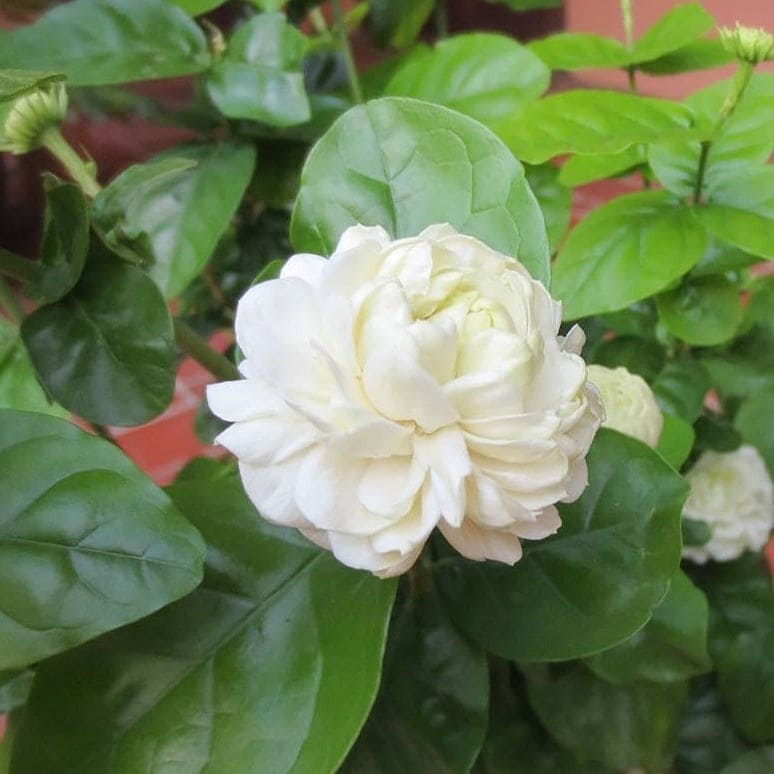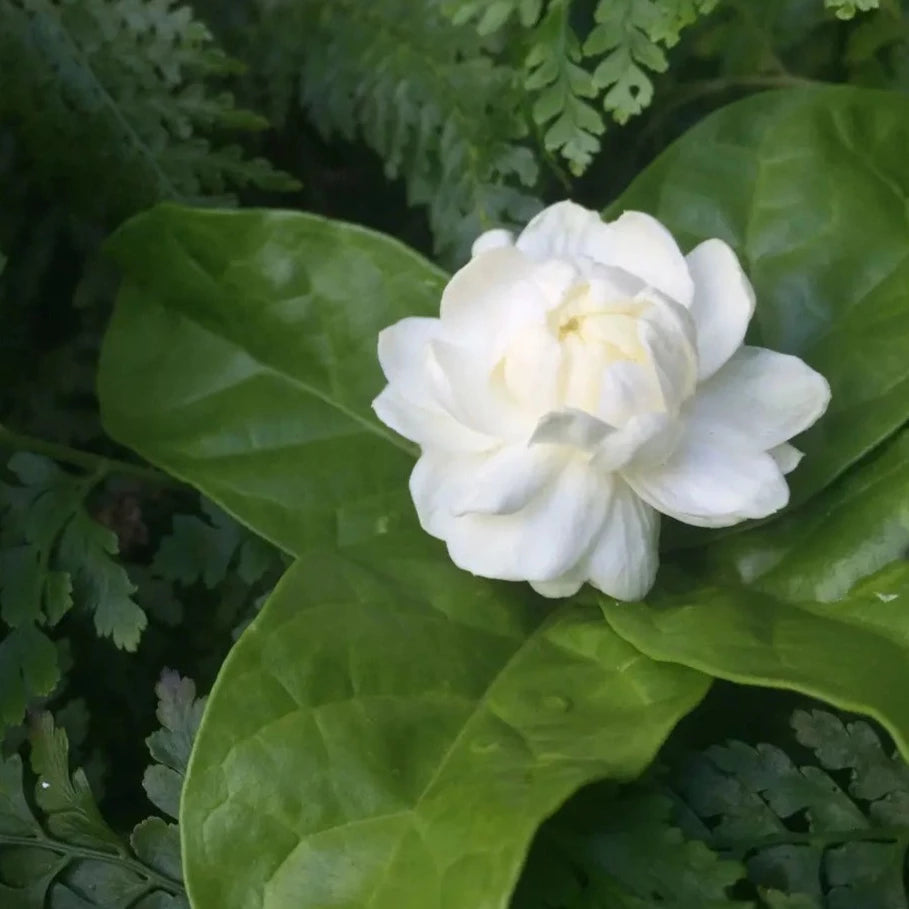



At a Glance
-

Sunlight
-

Potting Medium
-

Fertilizer
-

Planting
Product Description - Arabian Jasmine / Gundu Malli (Jasminum sambac) Highly Fragrant Flowering Live Plant
21 REASONS to Purchase Flowering Plants from Seed2Plant 👇
✔ 7 Lakh+ Gardening Dreams Fulfilled – Making gardening easy for enthusiasts across India.
✔ Trusted by Happy Customers – Genuine reviews from plant lovers.
✔ Exclusive Discounts – Weekly promotions on selected plants.
✔ Expanding Plant Collection – Regularly adding new varieties to fulfill customer needs.
✔ Pan-India Plant Success – Our plants are thriving in all parts of India.
✔ Premium Air Shipment for Live Plants – Fast & safe delivery to maintain plant health.
✔ In-House Farm & Expert Botanists – Experienced farm team growing healthy plants.
✔ 100% Organic Growing Methods – Sustainable & chemical-free cultivation.
✔ Climate-Suitable Plants – Specially selected for Indian weather conditions.
✔ Shipped with Soil – Plants are sent with soil to reduce transplant shock and ensure better survival.
✔ Secure Packaging – Ensuring plants arrive in perfect condition with zero damage.
✔ Well-Packed & Labeled – Each plant comes with proper labeling & care instructions.
✔ Flexible Payment Options – EMI & Pay Later options available.
✔ Customer-Centric Approach – Providing real plant images before shipping for confirmation.
✔ Step-by-Step Plant Care Guide – Detailed care instructions included with every plant.
✔ Dedicated Shipping Support – Our team follows up after dispatch & resolves issues within 24 hours.
✔ Dedicated Customer Support – Quick assistance for all your queries.
✔ Multilingual Support – Assistance available in 5+ languages.
✔ Post-Delivery Guidance – Expert advice to ensure your plants thrive.
✔ Replacement Guarantee – Hassle-free replacements for any transit damage.
✔ Spreading Happiness with Every Plant – No customer from Seed2Plant has ever returned unhappy. We always bring happiness to the faces of all plant lovers who choose Seed2Plant.
FAQs about Arabian Jasmine / Gundu Malli (Jasminum sambac) Highly Fragrant Flowering Live Plant
What is Arabian Jasmine (Gundu Malli)?
Arabian Jasmine (Jasminum sambac) is an evergreen shrub known for its highly fragrant white flowers. It is often used in perfumes, garlands, and religious ceremonies.
How tall does the Arabian Jasmine plant grow?
Arabian Jasmine can grow up to 3 to 6 feet tall when planted in the ground, but can be pruned to maintain a smaller size when grown in pots.
What is the flowering frequency of Arabian Jasmine plant?
Arabian Jasmine blooms year-round, providing continuous fragrance and beauty in your garden or home.
What type of soil is best for Arabian Jasmine?
The plant thrives in well-draining, loamy or sandy soil with good organic matter. It prefers a neutral to slightly acidic pH.
How much sunlight does Arabian Jasmine need?
It thrives in full sun, but it can also tolerate partial shade. More sunlight encourages better flowering.
How do I water Arabian Jasmine?
Keep the soil moist but not soggy. Water regularly, but ensure the plant has good drainage to prevent root rot.
Can Arabian Jasmine be grown in pots?
Yes, Arabian Jasmine can be successfully grown in pots. Use a 12-inch pot and ensure it has proper drainage. Prune it regularly to maintain size.
What is the ideal temperature for Arabian Jasmine?
Arabian Jasmine grows best in temperatures between 20°C to 35°C. It should be protected from frost.
What kind of pests and diseases affect Arabian Jasmine?
Watch out for aphids, mealybugs, and spider mites. Use neem oil or organic solutions to control them. Proper air circulation helps prevent fungal diseases.
How should I fertilize Arabian Jasmine?
Use organic fertilisers like vermicompost or fish amino acid every 4-6 weeks during the growing season. Reduce fertilisation in winter to prevent overfeeding.











